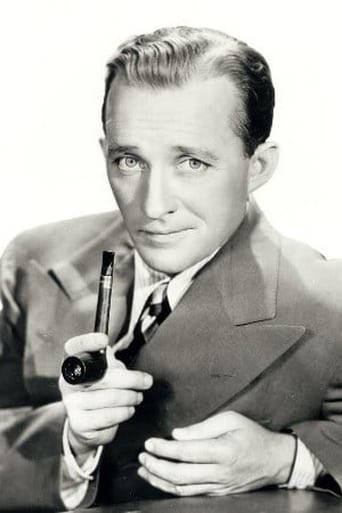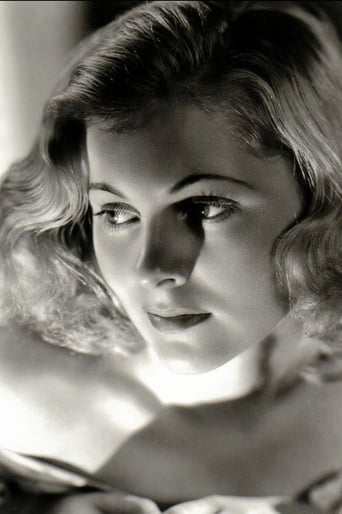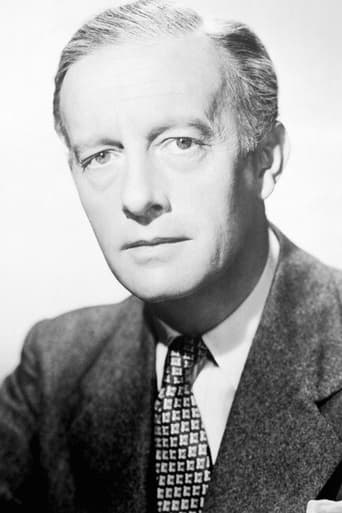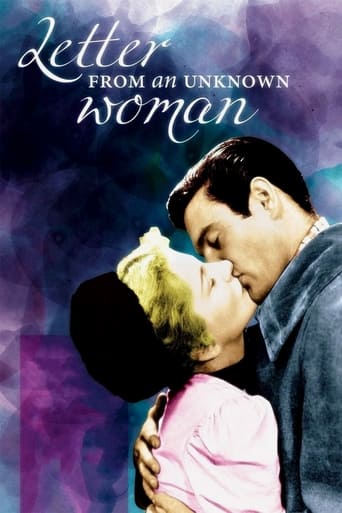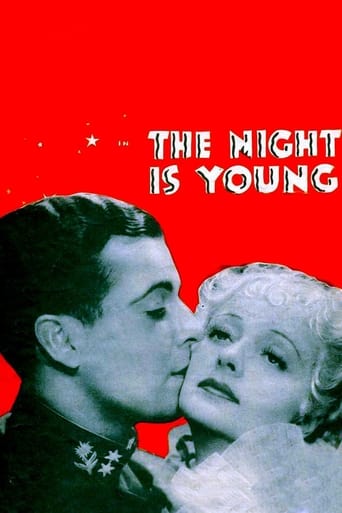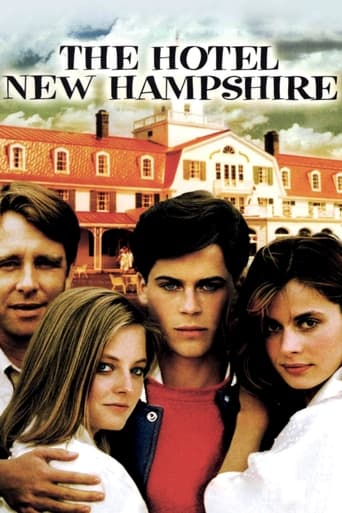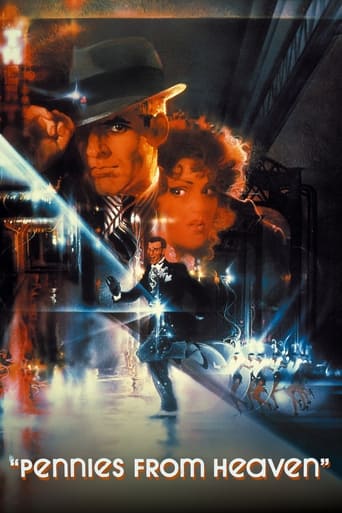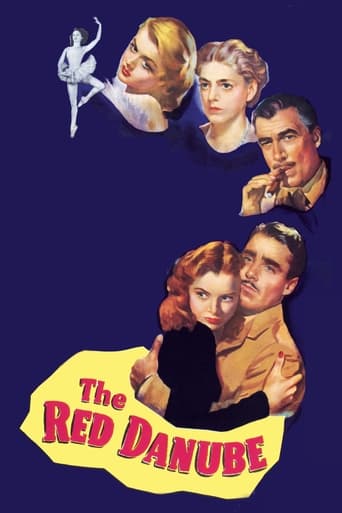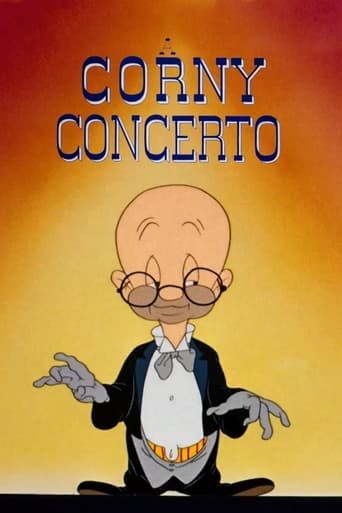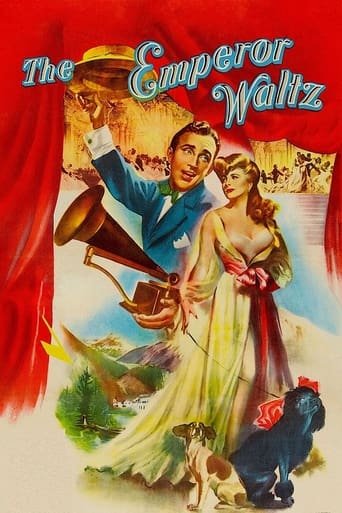
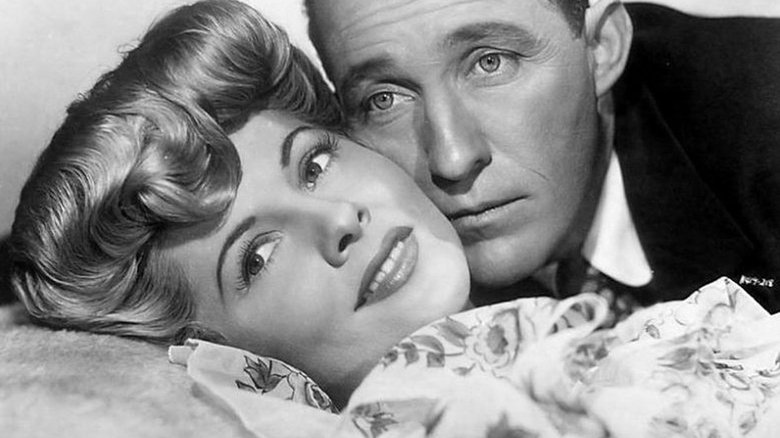
The Emperor Waltz (1948)
At the turn of the 20th century, travelling salesman Virgil Smith journeys to Vienna in the hope he can sell a gramophone to Emperor Franz Joseph, whose purchase of the recent American invention could spur its popularity in Austria.
Watch Trailer
Cast
Similar titles
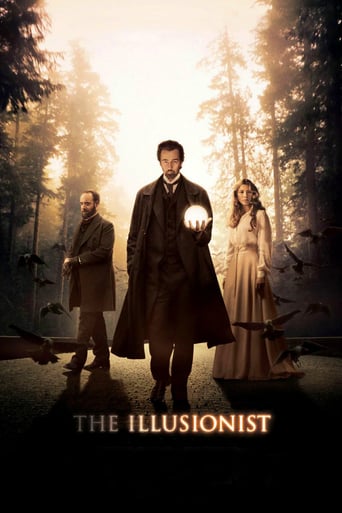
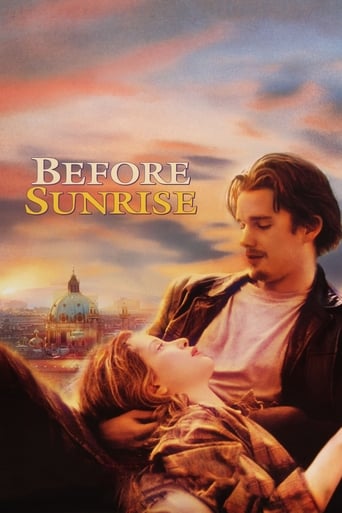

Reviews
the audience applauded
Admirable film.
The movie's neither hopeful in contrived ways, nor hopeless in different contrived ways. Somehow it manages to be wonderful
The thing I enjoyed most about the film is the fact that it doesn't shy away from being a super-sized-cliche;
It's nice to see others who are also quite fond of The Emperor Waltz. The film mayn't be a personal favourite or a masterpiece, and there has been better from all involved- for example it is one of Billy Wilder's weakest films that I've seen but that is not knocking it at all, just that his best films are some of the best ever made- but The Emperor Waltz is still a lovely and very enjoyable film. Yes the story is incredibly silly and at its worst disposable and Bing Crosby has moments where he does overact. The Emperor Waltz does look absolutely gorgeous, the clothes and scenery coupled with the colourful cinematography really do make for a visual feast. The music is both lush and characterful, and there are songs also that are really catchy and pleasant to listen to. The choreography in the ballet sequence is wonderfully nimble as well as deliciously witty, it also doesn't go on for too long or bog the film down. The script at its best is uproariously funny with Wilder's style definitely coming through, helped by the great comic delivery, and there is also room for some genuinely sweet moments without falling into schmaltz as well as some biting but often gentle cynicism with the portrayal of the Austrian court while keeping in good taste still. Wilder directs with a sure hand, if not at his best and in the performances there is little to complain about. Particularly good are the dog Buttons, who bags some of the film's funniest moments as well as its sweetest, and an unrecognisable Richard Haydn, sometimes his character is irritating but Haydn is also hilarious and thoughtful too. Joan Fontaine is subtle and touching, the rest of the supporting cast turn in good work and while Crosby does go overboard at times he takes a light-hearted and suave approach in others which is most endearing and he characteristically sings magnificently. Overall, lovely stuff with a lot to like. 8/10 Bethany Cox
... is, of course, streets ahead of four-quarter Godard but this does disappoint more than it pleases. If she's not careful Joan Fontaine is likely to wind up on the wrong end of a Trivial Pursuit question: Which non-singing, non-dancing actress still managed to co-star with a leading singer and THE dancer of the twentieth century. There's absolutely no chemistry whatsoever between Fontaine and Crosby which is understandable considering Crosby was in love with himself. Although they were at the same studio, Paramount, Crosby was serenely unaware that Wilder was in the middle of a hitting streak and had just turned out four smashes - The Major And The Minor, Five Graves To Cairo, Double Indemnity and The Lost Weekend - in a row and collected Best Screenplay, Best Director, Best Picture Oscars for the last one, because he showed up with his own team of writers headed by Barney Dean (yeah, you heard; Barney Dean to re-write Billy Wilder)and would hand new pages to Wilder each day saying 'here's what we'll be shooting today' or 'I'll be playing golf, let me know'. Alas, what he lacked in manners/respect Crosby made up for in clout, his pictures were just as big hits as Wilder's and he'd had more of them. Apart from this what started out as a valentine to fin-de-siecle Vienna metamorphosed into a tribute to Yankee know-how/get-up-and-go with Crosby's David taking on the Viennese Goliath in the shape of Emeror Franz-Joseph (Richard Haydn). No Wilder film could ever be all bad and his barbed reference to genocide remains with Crosby saving a mongrel litter from Sig Ruman's 'doctor' and confronting Franz-Joseph with a speech about the mongrels not being 'pure' enough to be allowed to live. Franz-Joseph is played as something just this side of a buffoon and there's absolutely no mention of the assassination of his wife, Sissi (a memorable role for Romy Schneider) or the double suicide of his son and the son's mistress at Mayerling. The prime interest will be to Wilder completists and/or what-might-have-beeners.
This is not a great Billy Wilder film, but any film he's involved in is worth looking at. Like Orson Welles, even when he's below par in his work he's ahead of the pack. Here Wilder is going back to his roots - he came from Austria, and just left it before the Nazi seized control (I think two aunts of his died in concentration camps). Wilder knew what the highbound, tradition controlled court and government of Austria Hungary was like, with it's unofficial racism towards Jews and Slavs. Only Hungarians (by force) got equal treatment to the Austrians in the government and army. If Jews did well in the professions or business they were hated for it. Only Erich von Stroheim would have had a similar idea of the truth, but he looked elsewhere at the sordidness of the court - at it's sexual peccadillos. But the film is not successful in capturing that image. It comes closest when Richard Haydn (as the old Emperor Franz Joseph - possibly his best straight acting job/though his performance as a sadistic nobleman in FOREVER AMBER is close to it)tells Bing Crosby why the marriage between him and Joan Fontaine would fail. Fontaine would soon be pining for those fine aristocratic experiences and events that she would never be able to go back to once she married a commoner. Haydn compares aristocrats to snails - serene and haughty in their little shells, but remove them from their shells and they die. It may be wrong here (the movie ends with Crosby and Fontaine united), but in reality it hasn't always worked. Look at the tradition bound Windsor family and their marriage fiascos.Oddly enough, just as Wilder failed in his attempt to make a film about the Austro-Hungarian Empire Max Ophuls made the classic Viennese romance of that period - A LETTER FROM AN UNKNOWN WOMAN, starring Fontaine and Louis Jordan. It was not on the scale of THE EMPEROR WALTZ, but it is better remembered and enjoyed, and gave Fontaine a memorably tragic character. If one wants to get a glimmer of the zeitgeist of old Wien see the Ophuls movie. And if not that see a British film starring Lili Palmer, BEWARE OF PITY, which also captures the neurosis of the upper classes in that age. As for THE EMPEROR WALTZ, watch it for Haydn's fine performance, Crosby's singing and comic moments (when he turns a phonograph into a 19th Century berry juicer, which is a lovely little scene), and Roland Culver's social plotting. You'll find these all quite enough to enjoy the movie.
This is a film you needn't strain your thinking on but it's a charming confection all the same. If you like Bing's easygoing style then there's lots to enjoy here. I was captivated by the superb photography of the mountains and local scenery, and being musical myself, very much appreciated the violin selections that were played. All the scenes are replete with gorgeous settings and costumes and Ms Fontaine is as exquisite as ever. I was intrigued by those 'horseless carriages' -- the vintage cars from the turn of the century. Personally I don't care to look for faults but just come to sit and appreciate the movie for what it has to offer, which is light entertainment with a happy ending -- a time of simple enjoyment.
